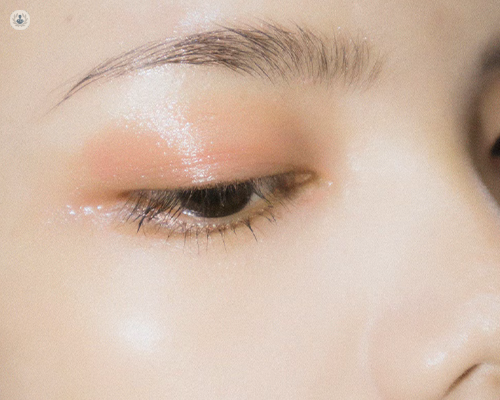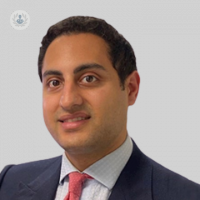What is Fuchs' dystrophy?
Written in association with:Fuchs' dystrophy is a progressive eye disease that affects the cornea, the clear front surface of the eye. Named after the Austrian ophthalmologist Ernst Fuchs, who first described it in 1910, this condition primarily impacts the innermost layer of the cornea, known as the endothelium.
The endothelium is responsible for pumping excess fluid out of the cornea to maintain its clarity. In Fuchs' dystrophy, the endothelial cells gradually deteriorate and die off, leading to a buildup of fluid within the cornea. This fluid accumulation causes corneal swelling, clouding, and vision impairment. In this article, Mr John Awad, an esteemed consultant ophthalmologist, details the condition in more detail.

Causes and risk factors
While the exact cause of Fuchs' dystrophy remains unknown, it is often inherited. The condition usually manifests later in life, with symptoms typically appearing in individuals in their 50s or 60s. Women are more frequently affected than men, and a family history of the disease increases the likelihood of developing it.
Symptoms
Early signs of Fuchs' dystrophy may include blurred vision, particularly in the morning, which improves as the day progresses. As the disease advances, vision problems become more persistent.
Patients may experience glare, haloes around lights, and a feeling of grittiness or discomfort in the eyes. In severe cases, painful blisters, known as bullae, can form on the corneal surface.
Diagnosis
An ophthalmologist can diagnose Fuchs' dystrophy through a comprehensive eye examination. Specialized tests, such as corneal pachymetry to measure corneal thickness and specular microscopy to assess the endothelial cell count, are often used to confirm the diagnosis and determine the severity of the condition.
Treatment
There is no cure for Fuchs' dystrophy, but treatments are available to manage symptoms and improve vision. In the early stages, hypertonic saline eye drops can help reduce corneal swelling.
Soft contact lenses or therapeutic bandage lenses may also provide relief. As the disease progresses, corneal transplant surgery might be necessary. Two primary types of corneal transplants are penetrating keratoplasty (full-thickness transplant) and Descemet's membrane endothelial keratoplasty (DMEK), which targets only the affected endothelial layer.
Living with Fuchs' dystrophy
Living with Fuchs' dystrophy requires regular monitoring and treatment adjustments by an eye care professional. While the condition can significantly impact quality of life, advances in surgical techniques offer hope for restored vision and improved outcomes for those affected by this challenging eye disease.


